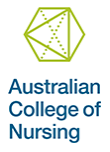Child Development in the Family Context

The purpose of this unit of study is to help students explore child development within the child’s family, culture, and environment.
Nurses working in partnership with infants, children, and their families must have in-depth knowledge and understanding of a child’s physical, emotional, cognitive, and social development and the influences on their development in the early years. This knowledge assists nurses in promoting and strengthening the relationship between young children and their support networks, therefore enabling the attachment process, a fundamental element in healthy development.
Central to the role of a nurse working with young children and families is acquiring growth and developmental assessment skills. Assessing, screening, and monitoring a child’s development throughout the early years provides a good foundation for person-centred health promotion and facilitates early intervention when developmental issues are detected.
Students studying this Unit will consolidate their theoretical learning through a 40-hour professional experience placement in a child and family health setting.
Term : JANUARY, JULY
Hours of Study: 150
Credit Points : 6
Theme 1: Developmental foundations and influences
Evaluate the research, policies, models, and frameworks that provide parameters for assessing screening, and monitoring child development in the early years
Theme 2: Developmental surveillance and health monitoring
Critically analyse the complex social, cultural, and environmental factors that influence developmental outcomes in young children
Theme 3: Developmental progression in infancy & toddlerhood
Apply advanced knowledge of developmental foundations and theories to support infants’ and children’s biopsychosocial and emotional needs
Theme 4: Developmental progression in the pre-school years
Interpret the signs of perinatal distress that can influence infant-parent attachment and infant mental health and wellbeing
Theme 5: Supporting optimal development
- Implement effective communication strategies that strengthen partnerships with parents, families, community networks
- Reflect on the nurse’s role in facilitating parents’ understanding of their child’s developmental needs through health education and parenting skill development
- NiPHC Transition to Practice Program
- Posted By APNA - Australian Primary Healthcare Nursing Association - Transition to Practice Program
- Posted Date: 2024-11-28
- Location:Online
- Transition to Practice Program: helping nurses make the move into primary health care.
- Non-pharmacological Approaches to the Management o...
- Posted By eIntegrity Healthcare e-Learning
- Posted Date: 2024-11-28
- Location:Online
- This session presents a wide spectrum of non-pharmacological approaches to the management of chronic...
- Medications and Older Adults course
- Posted By eIntegrity Healthcare e-Learning
- Posted Date: 2024-11-28
- Location:Online
- This session describes the physiological changes that occur with ageing and the effects these change...
- Common Pain Conditions in Older People course
- Posted By eIntegrity Healthcare e-Learning
- Posted Date: 2024-11-28
- Location:Online
- This session describes some of the most common conditions that cause pain in older people, the manag...
- Assessment of Pain in Older Adults course
- Posted By eIntegrity Healthcare e-Learning
- Posted Date: 2024-11-28
- Location:Online
- This session describes the assessment of pain in older adults and the range of assessment tools avai...



